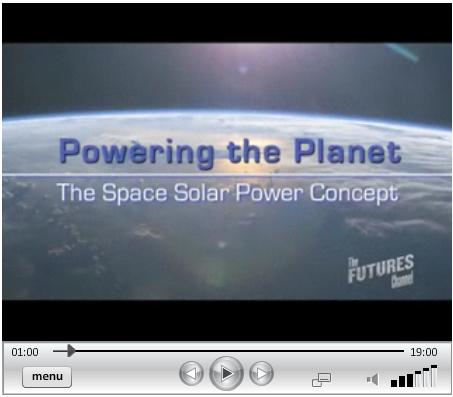We’re obviously going to be addicted to oil for a while longer, but one way or the other, not forever. It would do my heart glad to see the developing oil spill / ecological disaster in the Gulf and the proposed Cape Wind project in Nantucket Sound featured in a series of public service announcements promoting space-based solar power.
Category: education
Solar Power Satellites Issue – Online Journal of Space Communication
This Issue #16 – Solar Power Satellites is the most comprehensive set of articles I have seen in one place addressing all aspects of space-based solar power.
“In this issue, the Journal advances the proposition that the next generation of satellite services will be to gather sun’s energy in space and to deliver it to earth as a clean and sustainable source of electrical power. In the 21st century, the need for alternatives to the burning of fossil fuels to generate electricity has become so great that space is now a real option.”
Ralph Nansen, author of ENERGY CRISIS: Solutions from Space, and former Manager of the Solar Power Satellite Program for The Boeing Company is the guest editor for this edition of the Online Journal of Space Communication.
SBSP Demonstration Satellite Project Announced
On October 13, 2008, Colonel M.V. “Coyote” Smith publicly announced a plan to build the first-ever space-based solar power satellites. The vision of the plan is to light a single light bulb with power collected in space and beamed to Earth and the mission is to give students real-world experience working on solving the problems that lie in the path of developing and deploying Space Based Solar Power.
This plan includes building two satellites with launch dates sometime during 2010. One would collect solar energy and beam it back to an Earth-based lightbulb and the other would carry a lightbulb into orbit which would be illuminated from an Earth-based source of wirelessly transmitted energy.
It appears that the Air Force Academy and six other yet-to-be-publicly-announced universities will be participating in this first-of-a-kind project. I hope that Georgia Tech will be one of the universities that is heavily involved, based on their active Space Solar Power Workshop.
Powering the Planet – The Futures Channel
The Futures Channel has produced a 19 minute video to assist teachers in helping students begin to gain an understanding of the science, technology, engineering, math, energy, policy, environmental factors, and more involved in making Space Based Solar Power a reality. Students who are informed will be able to participate in and influence the debate over Space Based Solar Power.
Source: The Futures Channel


